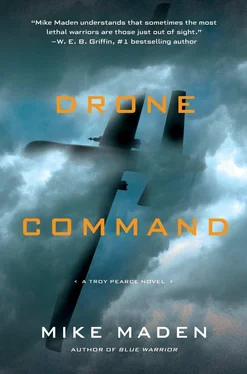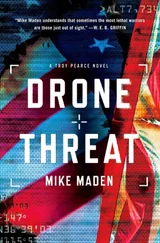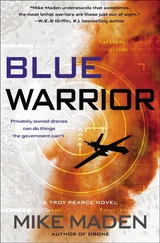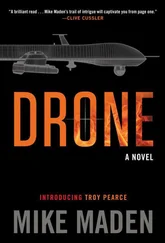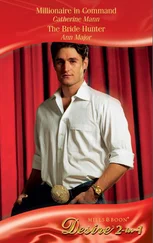But Lane and Myers said they also needed some help on a political matter. Pearce demurred, said he wasn’t a politician. Said yes anyway.
Duty and all that.
Standing on the balcony, sipping the last of his tea, he knew his real mission had barely begun and that he’d already nearly gotten killed doing it.
He could only imagine what was waiting for him out there in the dark. Didn’t matter. That was the job.
TANAKA’S PRIVATE OFFICE
THE KANTEI
TOKYO, JAPAN
4 MAY 2017
Tanaka sat behind his desk in Japan’s version of the White House, the ashtray in front of him crowded with butts. He flicked a gold-plated Dunhill to light another cigarette as his personal cell phone rang. He recognized the incoming number. A vice president of TEPCO, the Tokyo Electric Power Company. He took a long drag before picking up.
“Yoshio! How are you, my old friend?”
“I’m well, Tanaka- san . Sorry to bother you.”
Tanaka didn’t like the worried tone in his voice. “What’s wrong?”
“That American was snooping around again. Asking more questions.”
“The Issei ? Yamada?”
“ Hai . Dr. Yamada, from the University of Hawaii. I confirmed with an associate at the Ministry of the Environment. Unofficially, of course. Dr. Yamada’s story checks out. An environmentalist group contracted with Dr. Yamada and his research team.”
“More Fukushima nonsense?”
“ Hai .”
Tanaka took a thoughtful drag. “What did Yamada want to know?”
“The usual. I assured him personally that our cleanup efforts were proceeding according to plan. He said he was well aware of our efforts. Very strange.”
“Strange? How so?”
“He said he was friends with one of the foreign deconstruction crews. August Mann’s team, with Pearce Systems.”
“Pearce? Troy Pearce?”
“ Hai .”
“Anything else?”
“No, sir.”
“Keep me posted if this Yamada character shows up again. And keep your eyes on the Pearce Systems people.”
“Is there a problem? Should I dismiss them?”
“Not yet. But have your internal-security people pay close attention to them.”
Tanaka hung up the phone and stabbed out his cigarette. More Westerners snooping around the Fukushima facility. Either environmentalists or spies. Japan didn’t need either, especially meddling do-gooders. Humiliating. Japan would fix the problems. His country needed energy independence and nuclear power was the key.
And this Pearce fellow. Ito informed him that he brought Pearce Systems in for a drone demonstration, but he wasn’t aware Pearce was involved in Fukushima as well. He knew that drones and robots were being deployed in the hazardous cleanup. Pearce Systems had the best drones in the world, so it made sense. But this was quite a coincidence.
Tanaka lit another cigarette. Picked up the phone and called an acquaintance in the intelligence service. Time to find out more about Pearce.
ONE MILE DUE WEST OF KANASHIGE ISLAND
EAST CHINA SEA
5 MAY 2017
The twin-hulled catamaran raced across the water at thirty knots, a decent speed for a sixty-foot-long research boat. Clear sky and calm waters made for a perfect demonstration day.
Pearce stood on the high rear deck behind the tinted-window wheelhouse. He could feel the pulsating diesel engines in the soles of his feet. The open deck offered a 270-degree view of the empty sea-lanes on all sides. Standing next to Pearce admiring the view was Vice Admiral Sanji Hara of the JMSDF, dressed in blue digital camouflage and dragging on a cigarette. The short, barrel-chested Hara was an outspoken proponent for constitutional reform and naval rearmament, one of the few JMSDF flag officers to openly side with the Ito administration on these controversial issues. His recently published best-selling book, The Rise of the Red Khans , warned against China’s insatiable territorial ambitions, chronicling its ancient lust to possess the Japanese islands since the time of the Mongol empire. Winning him over to Lane’s perspective would be a real coup.
Clutching the rail next to Hara was the very tall and soft-spoken Dr. Nitobe Ikeda, director of NEDO, the Japanese version of DARPA. Ikeda rose through the ranks of a research department in one of Japan’s largest technology conglomerates before accepting the NEDO directorship. Reviving the Japanese economy in the face of its impending demographic winter was foremost in Ikeda’s mind, according to the dossier Pearce read.
Myers and Tanaka finished out the complement of guests for today’s demonstration. The weather, at least, was cooperating. Towering cumulus clouds sailed like dreadnoughts across a sunny blue sky. The catamaran’s powerful diesel engines churned up a sparkling white wake in the deep blue water behind them. A sealed launch tube angled up from the center of the otherwise uncluttered wheelhouse deck.
“ Carolina Blonde ?” Myers asked. She flashed a mischievous smile. “Must be quite a story.” She didn’t know much about Pearce’s former love life, but Cella was one of the most beautiful women she’d ever met, not to mention rich and brilliant. She’d seen her up close, admired her medical skill and personal courage. Knew all about her history with Pearce, too. Also knew the Italian doctor refused to follow him back to the United States. She was a closed chapter in his life, but no doubt there were many others like her in his past. That would make for an interesting read, she imagined.
Pearce shrugged, feigning innocence. He was glad Myers was comfortable enough with him to tease him. “Kenji named the boat, not me. You’d have to ask him.” Dr. Kenji Yamada was one of his closest friends, but the illustrious marine scientist was a notorious rake.
“A beautiful day for a boat ride, Mr. Pearce,” Tanaka said. “I don’t suppose you brought along any fishing gear?”
Pearce smiled. “No such luck.” Pearce wished he had. He was as familiar with a fishing rod as he was with an assault rifle. He’d used both all over the world. Unfortunately, catching fish wasn’t on the agenda today. At least not the kind that swim under the water.
“My grandfather took me out on his fishing boat when I was a small child,” Hara said. “I’ve sailed these waters for over sixty years now.”
“The Japanese people are always nostalgic for the sea, even if they have never sailed in a boat,” Ikeda said. Pearce leaned forward to hear him better, his gentle voice barely above a whisper. “We are an island nation. The ocean is our past and our future. Nearly everything we buy or sell sails across the waters.”
“Which is why we need a powerful navy to defend the sea-lanes,” Hara grunted. “A true blue-water navy.”
“The admiral is correct,” Tanaka said. “The United States became a great economic power because it acquired great naval power, and it became a naval power because it was bordered by oceans just as we are.”
Myers and Pearce exchanged a furtive glance. It was going to be a long day.
“The United States Navy is committed to the concept of open sea-lanes for everybody, especially our ally, Japan,” Myers said.
“And our navy is undergoing its own technological changes. I hope to show you the future of naval warfare today,” Pearce said.
Admiral Hara spun around, gazing up into the sky. “When will we see these drones of yours, Mr. Pearce? The morning is getting late.”
“Funny you should ask, Admiral.”
The other Japanese instantly raised their eyes, scanning the skies. Nothing. But Hara’s eyes, conditioned by years of keeping watch, spotted something on the water in the distance to the north. He pulled his binoculars to his eyes. “A surface vessel, ten to twelve meters in length, coming in fast, straight toward us. Sixty knots at least.”
Читать дальше
